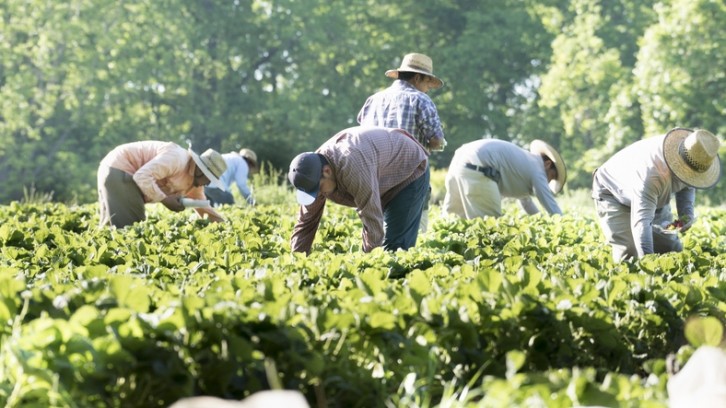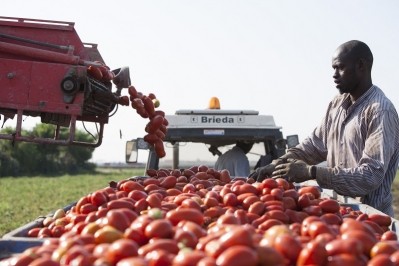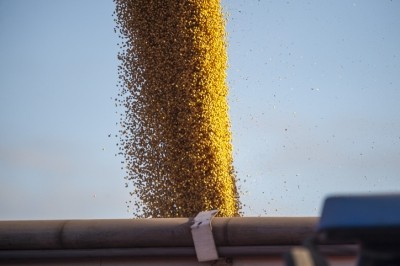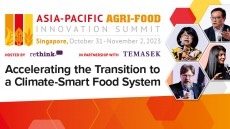Food and beverage companies ‘failing to protect workers from forced labour risks’: report

Analysis from the Business & Human Rights Resource Centre has revealed companies in the sector are failing to identify and prevent abuses, with migrant workers – who are frequently hired in food and beverage supply chains – often facing the worst consequences of this inaction.
After six years of benchmarking progress is stagnating in the sector, the group said, which is cause for concern, especially against the backdrop of current geo-political and climate crises.
Forced labour incidents and exploitative practices are frequently reported in high-risk commodities such as fish, beans, cattle, coffee, rice, tea, tomato and wheat.
Companies also perform particularly poorly when it comes to preventative measures, such as supporting freedom of association and collective bargaining, incorporating the voices of workers into due diligence processes (9/100) and remedy efforts, including fee repayments and remediating harm to workers (6/100).
The report added not nearly enough is being done by companies to address exploitative recruitment practices (13/100), which often leave already vulnerable workers indebted and struggling. Furthermore, companies fail to identify and report human rights risks, despite high-risk sourcing. More than a third (37%) of companies have yet to disclose how they carry out a human rights risk assessment on their supply chains, the report said, including meat companies Hormel (9/100), JBS (4/100), Tyson (3/100) and WH Group (0/100).
Despite momentum building for human rights due diligence legislation around the world – which threatens to bring legal, financial and reputational consequences for companies failing to comply – there is a complete absence of a level playing field in the sector when it comes to addressing forced labour exploitation, according to the analysis. Only half the benchmarked companies scored more than 10/100, in stark contrast with the top-scoring companies such as UK supermarket Tesco (52/100) and Australian retailer Woolworths (56/100).
Meanwhile, some companies have disclosed little to no improvement in six years, the report added. This included meat companies JBS (4/100) and Tyson (3/100), as well as Coca-Cola bottler FEMSA (3/100). These companies have ‘consistently failed to demonstrate even basic relevant policies and practices to address worker exploitation which is inherent in the sector’.
“The food system is a cornerstone of the global economy, accounting for up to two thirds of all jobs. People who harvest, pick, catch, process and pack commodities and products in global food supply chains are relied upon as essential workers – but the critical role played by workers in this sector is not reflected in corporate approaches to protect them,” said Áine Clarke, Head of KnowTheChain and Investor Strategy, Business & Human Rights Resource Centre. “At a time when forced labour risks are being exacerbated by the converging geopolitical, economic and climate crises, it is alarming to see how little is being done by companies to protect the workers in their supply chains.”
Solutions exist for global food and beverage manufacturers to identify labour abuses in their supply chains. Cooperative models can support responsible and sustainable sourcing, for example, while Human Rights Impact Assessments (HRIAs) identify and respond to human rights impacts in value chains. Ethical sourcing, of type demonstrated by Princes signing pre-harvest tomato supply contracts in southern Italy to stamp out exploitation of migrant workers, can further assist food and drink companies to counter the problem.
But Clarke warned the cost-of-living crisis is widening the gap between the sector’s profit margins and the working conditions of those who make those profits possible.
“As momentum builds for human rights due diligence legislation around the world, companies must escalate action on forced labour risks in their supply chains – or risk the legal, financial and reputational consequences.
“If companies in this sector want to get better at identifying and preventing forced labour risks, they must urgently adopt a worker-centric approach to due diligence. This means giving workers and other key stakeholders a seat at the table when it comes to designing, implementing and monitoring processes such as risk assessments, grievance mechanisms and supplier monitoring.”














